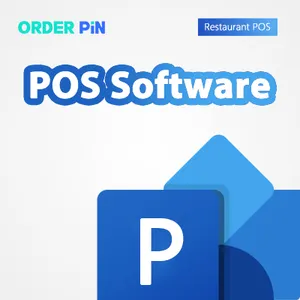Popular in your industry















































































































































Top categories
About mobile app india
In an era where digital transformation dictates the pace of business growth, India's tech powerhouses are leading the charge with innovative mobile app solutions. These applications are not just revolutionizing the way businesses operate but are also unlocking new avenues for growth and customer engagement. From harnessing the local talent pool to integrating advanced technologies like AI, Indian companies are at the forefront of creating versatile and robust mobile apps. This article delves into the dynamic landscape of India's mobile app development, exploring how these digital tools are shaping the future of business not only within the subcontinent but on a global scale.
The Emergence of India's Tech Powerhouses

India has positioned itself as a significant player in the global IT and BPO services market, contributing substantially to the country's service exports. The IT and BPO sectors, which form a major part of this contribution, have seen a consistent growth, reflecting India's capability in these areas. The country's export of IT and BPO services is a testament to its role as a global tech and services hub.
The presence of both Indian and international IT companies, along with Global Capability Centers (GCCs) established by global corporations, has been instrumental in harnessing the Indian talent pool. These centers are not just leveraging local talent but are also at the forefront of innovation and efficient service delivery. The success of these sectors has had a positive ripple effect on the Indian economy, creating direct and indirect employment opportunities and contributing to the country's economic growth.
Looking forward, the focus is shifting towards more complex and expertise-based services, which are expected to drive the growth of the IT services sector even further. This evolution indicates a move from traditional cost arbitrage to a value-driven approach, where quality talent and innovation play a pivotal role in sustaining India's growth as a tech powerhouse.
Overview of Mobile App Solutions on Alibaba.com
The landscape of mobile app development in India is marked by a diverse array of solutions catering to various business needs. From custom app software services that span across Android and iOS platforms to specialized applications like on-demand services with real-time tracking, the offerings are comprehensive. The development of mobile apps for online ordering has streamlined processes, making them more efficient and user-friendly. For those in various industries, there are dedicated e-commerce mobile apps designed to meet specific consumer demands.
The mobile app market also includes solutions for online payment systems, video playing and sharing platforms, and even niche markets. These apps are not only designed to improve customer engagement but also to provide seamless operational capabilities for businesses. The versatility of mobile app solutions on Alibaba.com showcases the technological prowess of Indian companies in crafting applications that serve a multitude of purposes and industries.
Types of Mobile Apps for Business Growth
India's app market has seen a surge in mobile applications that cater to a variety of business needs, fostering significant growth. Superapps, which consolidate multiple services into a single platform, are gaining popularity, mirroring trends in South East Asia. These apps integrate functionalities such as messaging, payments, and even loan applications, hinting at future expansions into food delivery, e-commerce, and transportation services. The mobile gaming sector also stands out, with a substantial user base that continues to expand alongside smartphone accessibility and network improvements. Despite regulatory challenges, the sector's growth trajectory remains positive. The diversity of apps reflects the dynamic nature of India's digital ecosystem, offering businesses a range of tools to enhance their operations and engage with a vast and growing user base.
Key Features of Top Business Mobile Apps

Business communication apps revolutionize customer communication with automated messages, quick replies, and business profiles, enhancing personalized support and product showcasing. Remote collaboration tools simplify remote work with features like screen sharing and virtual rooms, catering to the need for efficient online meetings and webinars. Integrated collaboration platforms offer real-time chat, video meetings, and integrated productivity tools, streamlining document collaboration and project workflows.
Comprehensive communication solutions bring messaging and collaboration to the forefront, integrating with services for comprehensive communication solutions. Video conferencing tools stand out with HD video quality and interactive features like real-time captions, ensuring reliable virtual meetings. CRM systems' contact management, lead tracking, and sales forecasting tools empower businesses to maintain strong customer relationships and drive growth.
Customer support tools' ticket management and live chat capabilities enable efficient customer inquiry handling, fostering satisfaction and loyalty. CRM tools' free features for deal tracking and email marketing help organize and nurture customer relationships. Financial management tools' reporting and tax compliance features provide robust financial management, while expense tracking and financial reporting tools streamline financial processes for businesses.
Integrating Mobile Apps with B2B E-commerce
The integration of mobile apps with B2B e-commerce is a transformative trend that has been gaining momentum. B2B mobile apps like those found on Alibaba.com are at the forefront of this shift, offering platforms that manage product catalogs, orders, and B2B transactions efficiently. These apps are revolutionizing the way businesses interact, providing a seamless bridge between traditional commerce and digital convenience. By enabling businesses to access a global marketplace on-the-go, these apps facilitate connections between buyers and suppliers, streamlining the procurement process and enhancing the efficiency of business operations.
Moreover, B2B mobile apps prioritize secure transactions and data protection, integrating advanced security features to safeguard sensitive business information. The customizable nature of these apps allows for a tailored experience, meeting the specific needs of businesses across various industries. As businesses continue to adopt a mobile-first strategy, the role of B2B mobile apps in e-commerce becomes increasingly critical, offering a competitive edge by enabling real-time data access and swift responses to market changes.
Advantages of Leveraging Mobile Apps for B2B Transactions

Mobile apps in the B2B sector offer significant advantages by enhancing operational efficiency and customer engagement. They enable businesses to maintain constant connectivity with their customers, facilitating transactions and providing real-time updates on products, inventory, and other critical details.
The integration of mobile technology in business operations leads to higher efficiency as transactions and services can be conducted with ease directly from mobile devices. This convenience results in increased customer satisfaction and activity.
Moreover, mobile apps contribute to a better customer experience by offering loyalty platforms and instant access to a variety of services, which can lead to increased sales. A well-designed business app can differentiate a company from its competitors and improve brand recognition.
The use of AI in mobile apps is becoming more prevalent, offering further benefits such as enhanced customer engagement and streamlined post-purchase activities. This technological advancement allows for more personalized customer interactions and loyalty incentives, fostering a more efficient and responsive B2B environment.
Case Studies: Success Stories from Alibaba.com
Alibaba's innovative solutions have been instrumental in transforming business operations for various sectors. Enhanced operational management and reduced waiting times have been achieved through Alibaba's advanced queuing solutions, which incorporate Artificial Intelligence and a suite of algorithm modules. The media industry has also seen improvements in content delivery and audience experience through the use of Alibaba's cloud technology.
Content production has been revolutionized with the ability to securely and reliably produce from any location, thanks to Alibaba's robust cloud infrastructure. Financial services have overcome significant challenges by utilizing Alibaba's comprehensive cloud services, which include infrastructure, data processing, and security solutions. The aviation industry has experienced a significant reduction in network latency, enabling swift and efficient data migration and minimizing business disruption.
These success stories underscore the transformative impact of mobile app solutions on businesses, particularly in the B2B sector. Alibaba's support extends across its ecosystem, powering technology, e-commerce, and logistics platforms, as evidenced by major shopping festivals and the operations of its logistics and e-commerce branches.
Choosing the Right Mobile App Solution for Your Business
Selecting the right mobile app development strategy is crucial for aligning with your business goals and ensuring a good user experience. It involves careful consideration of market research to understand user needs and expectations. Establishing the scope of the app is also key, including the type of app, framework, target audience, and necessary resources. Budget and time constraints are significant factors, as they dictate the extent of the app's features and its development timeline.
The choice of platform, whether Android, iOS, or both, is influenced by the target market's preferences and can significantly impact the budget. Early involvement of the development team can lead to more efficient and technically sound decisions. Opting for a suitable development framework, like React Native or Flutter, depends on various factors including technical expertise and project requirements. Moreover, creating a minimum viable product (MVP) for user testing can provide valuable feedback for refining the app.
Be prepared to pivot your strategy based on testing outcomes and evolving project scope. This flexibility can be vital for the app's success. Remember, there's no universal strategy that fits all; it's about tailoring the approach to your business's unique needs and the ever-changing digital landscape. This adaptability is essential for developing a mobile app that not only meets user demands but also stands out in the competitive market.
Conclusion
The digital revolution in India's business sector, spearheaded by mobile app innovation, is a testament to the country's burgeoning tech prowess. From the emergence of tech powerhouses contributing to the IT and BPO sectors to the diverse mobile app solutions available on platforms like Alibaba.com, India is redefining the B2B e-commerce landscape. The success stories from Alibaba highlight the transformative potential of these mobile solutions. As businesses navigate the complexities of choosing the right mobile app, the key lies in aligning with user needs and remaining adaptable to the digital market's shifts. The advantages of leveraging mobile apps for B2B transactions are clear: enhanced operational efficiency, improved customer engagement, and a competitive edge in the global marketplace. India's tech powerhouses are not just participating in the global IT arena; they are leading it, one innovative app at a time.






















































































